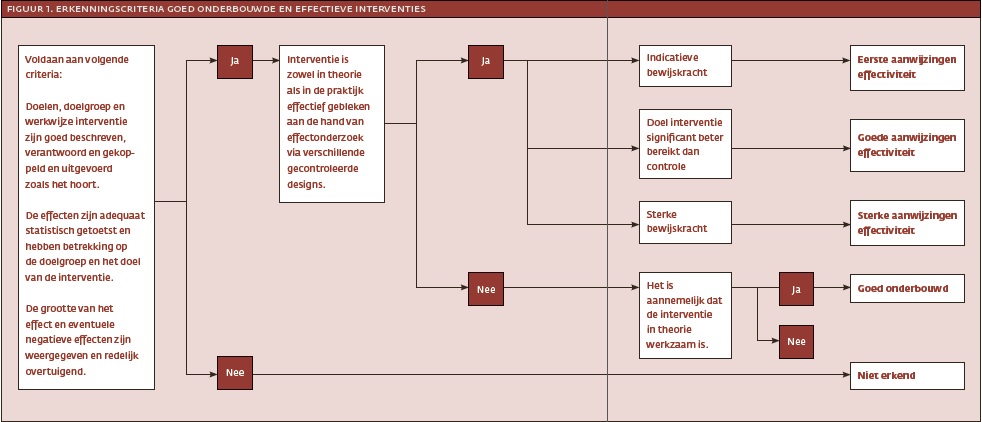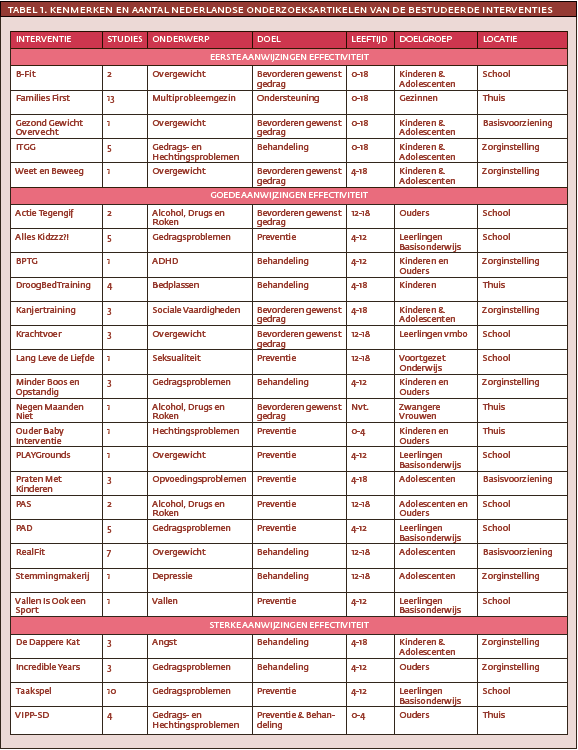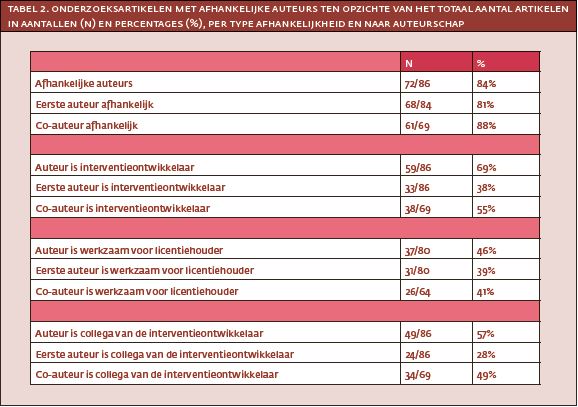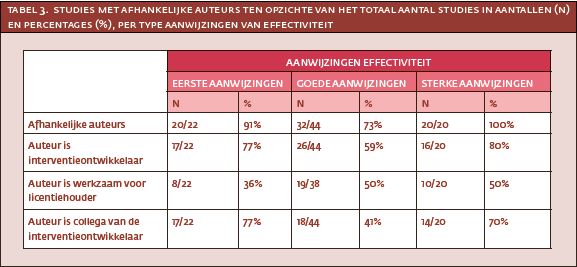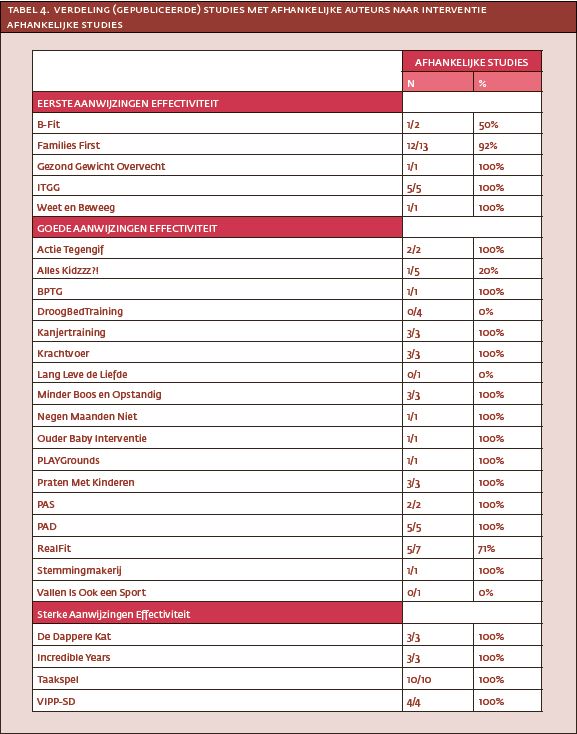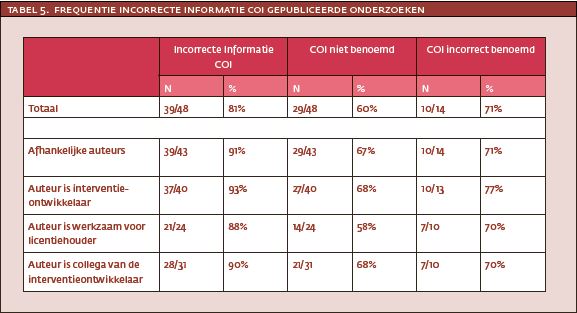De databank Effectieve Jeugdinterventies (www.jeugdinterventies.nl) bevat een groeiend aantal beoordeelde en erkende interventies die gericht zijn op het veilig en gezond opgroeien en opvoeden van jeugdigen. Denk aan programma’s om roken te ontmoedigen (bijv. ‘Actie Tegengif’), sociale en emotionele vaardigheden te verbeteren (bijv. ‘Kanjertraining, PAD’) of jongeren te ondersteunen bij hun seksuele ontwikkeling (bijv. ‘Lang Leve de Liefde’). Beroepskrachten in de preventiesector, het onderwijs, opvoedingsondersteuning, de jeugdhulp alsmede financiers van jeugdinterventies benutten deze databank om onafhankelijk beoordeelde interventies te selecteren voor hun beroepspraktijk.
De beoordeling van de effectiviteit en werkzaamheid van de interventies vindt plaats met vaststaande criteria en wordt uitgevoerd door onafhankelijke commissies. Organisaties die een interventie willen aanmelden voor erkenning, vullen hiertoe een interventiebeschrijving in waarin ze, middels het aandragen van wetenschappelijke (effect)studies, beargumenteren waarom hun interventie erkend zou moeten worden. De erkenningscommissie komt vervolgens tot één van de volgende beoordelingen: ‘goed beschreven’, ‘goed onderbouwd’ of ‘effectief’ – waarbij binnen deze laatste
Dubbelrollen in effectonderzoek |
|
Over de onafhankelijkheid van onderzoekers in effectonderzoeken uit de databank Effectieve Jeugdinterventies |
|
| 03/06/2016 | |
| Anne-Maria Verhagen, Ferry Goossens, Lars de Winter |
Samenvatting
DUAL ROLES IN RESEARCH
L. DE WINTER, A. VERHAGEN & F. GOOSSENS
The Dutch database of effective youth interventions shows the effectiveness of educational programs for children and adolescents. This paper shows to what extend interventions are based on Dutch studies with independent authors and if the declarations of Conflicts of Interest are correct. In total 86 studies on 26 interventions were studied; it was described to what extend authors had an interest through their involvement as program developers, license owners or as colleagues of the program developer. Results shows that authors were fully independent in 16% of the cases. In 19% of the cases a conflict of interest was correctly declared. The authors argue that more independent studies are needed and more strict rules should be set to improve the transparency of the interest of authors.

